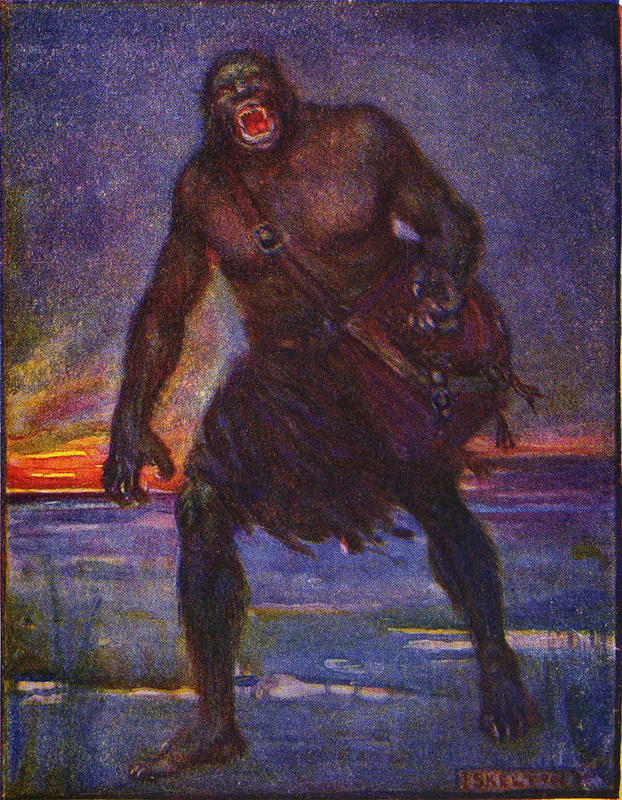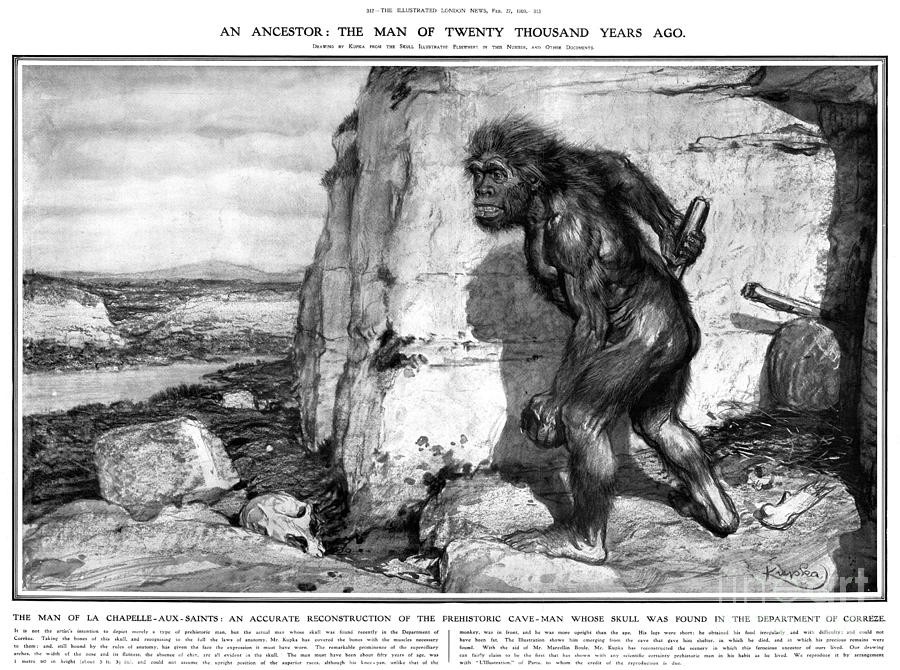| In the Anglo-Saxon epic poem Beowulf, Grendel is a frightening creature who sneaks into Heorot, the mead hall of the Danish king Hrothgar, and kills and eats the warriors. But what kind of creature is he? The original Beowulf poet did not provide an exact description of Grendle, but he does provide some clues. In his 1977 translation, Amherst professor Howell D. Chickering calls Grendle, among other things, an unholy spirit (line 120), a dark death shadow (line 160), an evil monster (433), a dark walker (703), and a demon (706). |
Grendel is usually depicted as a monster, and while the poet does not give the reader a lot of physical details, those he does give are monstrous, indeed.
Grendle has”gigantic fingers,” each topped with a “terrible hand spike” that “glistened like steel.” (Chickering translation, lines 983-985).
In his 2000 translation of Beowulf, the Irish poet Seamus Heaney says that Grendel is vaguely human in shape, though much larger:
... the other, warped
in the shape of a man, moves beyond the pale
bigger than any man, an unnatural birth
called Grendel (lines 1351–1354)
While we are not given a full description of Grendle’s appearance, we are given his background. Grendle is a descendant of Cain, the son of Adam, who, according to the Bible, was the first man, created by God. Cain was the first man to commit murder, killing his brother Abel. The Beowulf poet says that God then drove Cain “out, far from mankind,” and Cain’s children became “every misbegotten thing, monsters and else and the walking dead, and also those giants who fought against God time and again.” (lines 110-114) Fans of Tolkein’s Lord of the Rings will be interested to know that the original word for walking dead is not zombie, but orc.)
So then, regardless of what Grendle looks like, he is a fallen man, corrupted by the sins of his forebear Cain. He may be monstrous, but he is fundamentally human in nature.
What creature would have existed at the dawn of humankind that was fundamentally human in nature, yet different enough to frighten and disconcert us enough for us to call it monstrous?



